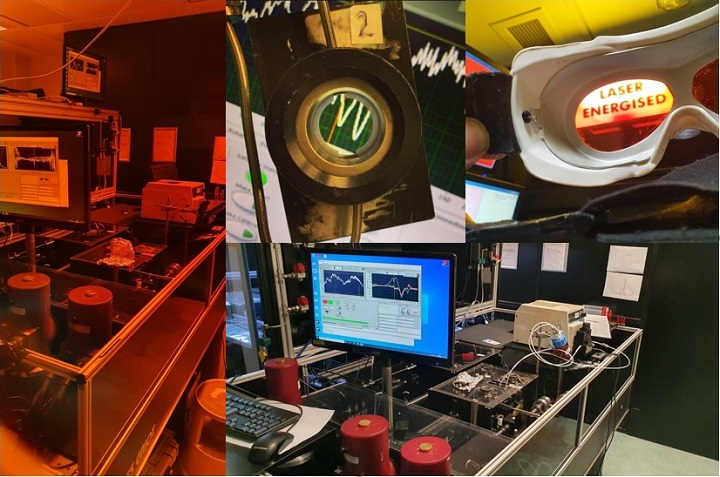Team led by York Chemists wins Inaugural Royal Society of Chemistry Horizon Prize
Research to explore the mechanistic details of important catalytic reactions, led by two academics in York, has been recognized with one of the inaugural Royal Society of Chemistry Horizon Prizes.

The prize recognizes work carried out by a team including scientists from York, the Central Laser Facility STFC and Syngenta Crop Protection. Working together, they managed to gain important new insights into carbon-hydrogen bond activation and functionalization reactions.
Carbon-hydrogen bonds are ubiquitous in the molecular world in both natural and synthetic compounds yet were historically considered inert and difficult to chemically modify. In recent years, selective metal catalysts that interact with specific carbon-hydrogen bonds and enable their modification have been developed. Understanding in detail how the metal catalyst operates is of high value in increasing the efficiency of such processes, but has been difficult to study directly.
Success in the project depended critically on cross-disciplinary collaboration, a state-of-the-art Central Laser Facility, spectroscopists, physical organic/organometallic, catalytic and industrial process chemists, allowing us as a team to naturally connect fundamentals with real-world applications.
Led by Professor Ian Fairlamb and Dr Jason Lynam in York, the team made use of a variety of analytical methods, including infrared and nuclear magnetic resonance spectroscopy, to understand the interplay between the metal and chemical substrates. Ultra-fast lasers at the Central Laser Facility were used to trigger chemical reactions and gain direct insight into the structure and behaviour of reaction intermediates that are formed on incredibly short timescales.
Professor Fairlamb explained: “The award recognises research spanning the three pillars of Chemistry – inorganic, organic and physical chemistry – and aligns with end-user applications in agrochemical, materials and pharmaceutical industries.”
Dr Lynam added “An interdisciplinary team was vital to the success of this project. The interplay between synthetic and mechanistic chemistry in York, the state-of-the-art spectroscopic methods at the Central Laser Facility and working closely with process chemists ensured that the key steps in important catalytic reactions could be observed. This has provided a step change in how we can probe and understand such reactions.”
The combination of techniques enabled the team to observe chemical events which occur on timescales ranging from a trillionth of second through to hours. Understanding these important chemical reactions across all timescales is important, particularly when optimising syntheses for commercial-scale manufacture – for example in the agrochemical industry.
Commenting further on potential applications of the research, Dr Alan Robinson from Syngenta said “From an industrial perspective, the advancements and breakthroughs in this project have the potential to offer us new and alternative catalytic systems, for key transformations that are difficult to access or currently require expensive and/or scarce metals. This can enable the implementation of cost-effective, value-adding and sustainable synthetic processes.”
The Horizon Prizes were created in 2020 following an independent review of the Royal Society of Chemistry's recognition programmes. These prizes highlight the most exciting, contemporary chemical science at the cutting edge of research and innovation. In particular, the Horizon Prizes recognise teams or collaborations who are opening up new directions and possibilities in their field, through ground-breaking scientific developments.